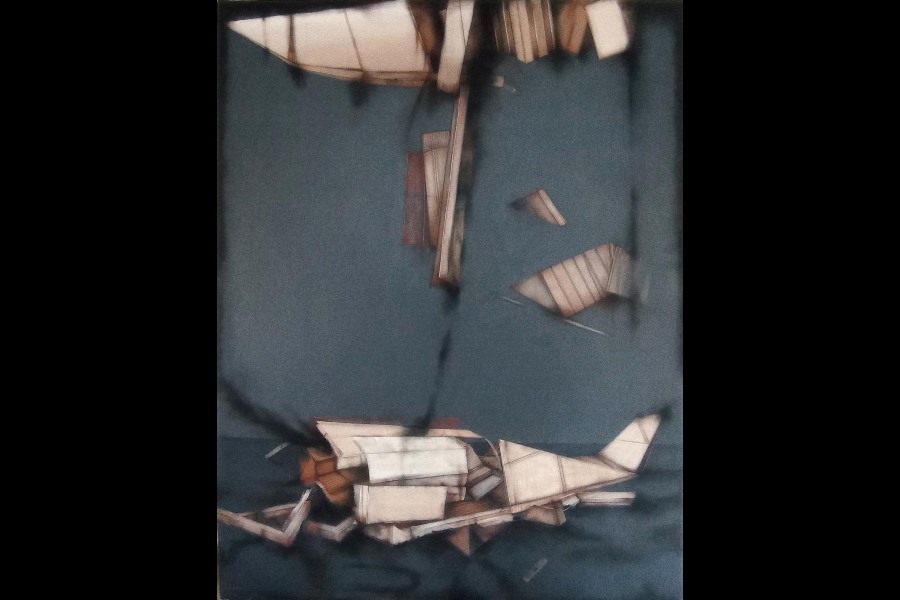Imagine walking into one of the musty, dust-laden rooms that exhibit botanical and zoological specimens at the Indian Museum — one is almost instantly transported to another era, not just because of the ancient beings on display but also owing to the lighting and the ambience that give everything a distinctly sepia tone. Now imagine a museum for our fading, monochromatic memories with blurred but familiar shapes pinned up on the walls. This is what walking into The Lost Fragrance of Memory, Suman Dey’s solo exhibition, felt like.
There is not a bright spot to be found in these works; it is as if everything is covered in a layer of fine sand. Brown, beige, black and white abound and the only other shade used reminds viewers of the patina of green that covers weathered metal surfaces. Mostly done in acrylic and charcoal, the matte texture of the paintings is as important as the choice of colours. The flatness that this texture lends to the works is key to conveying the impalpability of memories. Each of the colours has been dulled and diluted with white so that there is a slightly hazy, ephemeral quality to the artworks.
Even though Dey’s idiom is mostly abstract, it has not relinquished its mooring in the phenomenal world. Shapes and forms are thus distinctly identifiable. The most moving pieces are those of dilapidated and crumbling boats, carriers of memories that have run aground but still have stories to tell, much like Marquez’s ghost ships. Unexpected Storms II (picture) is particularly striking for it captures a sense of motion as bits and pieces of a capsized boat slowly disintegrate and sink to the bottom of a dark, vacuous vault.











